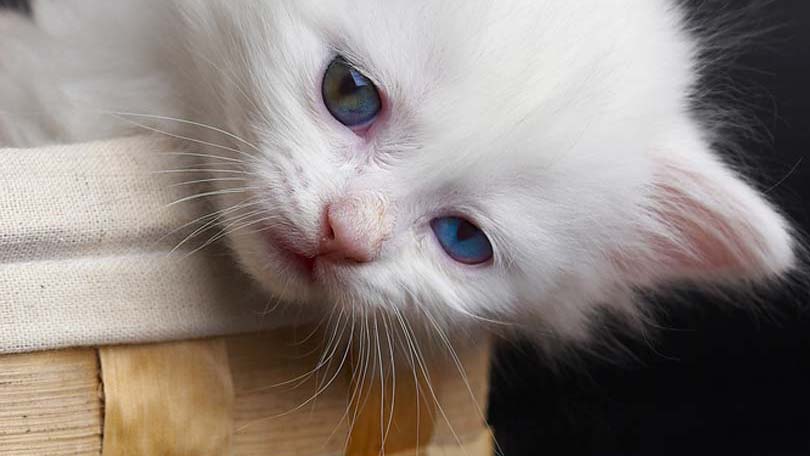
Properly caring for you Persian cat is the same for caring for most other cats with one big exception: that beautiful Persian coat. Failing to fully maintain your Persian cat’s coat will most likely result in matting so severe that shaving will probably be the only solution.
While it’s true that the fur will grow back and that shaving is not harmful to your cat, you didn’t select a Persian so that you could have a nearly bald cat running around your house! You likely chose that particular breed – and paid dearly for it – because you find the cat to be beautiful. So, let’s avoid shaving if possible.
Proper maintenance of the coat requires a bit of time every day in order to make sure that it stays as healthy and as tangle free as possible. Professional grooming, while it will help immensely, is not necessary as long as you take care to properly care for the cat yourself.
While sending the cat to the groomers can be quite costly, brushing and bathing the cat at home requires more of a commitment of time and patience than of money. With most cats, minimal grooming is required. If, however, you let your Persian cat go without brushing for a couple of weeks you are likely to have a big mess on your hands.
Because of the length of her coat, your Persian cat needs to be brushed each day. Doing so will minimize the possibility that she will develop knots in her fur. It doesn’t have to take a long time to brush your cat each day. Set aside 5-10 minutes, or handle the task while you watch television each night. Use a metal comb with teeth that are long enough to reach through her coat. Proper brushing will not only help stop tangles, but it will aid in the prevention of hairballs as well.
Regular baths will also help to keep a Persian’s coat it top shape. It is a good idea to begin giving baths as early in the cat’s life as possible. Doing so will make the event as stress free as possible. Before bathing you should always thoroughly brush the cat to remove any tangles in her coat. As mentioned earlier, it will be much easier for a professional groomer to bathe your cat, but if you can handle the task there is nothing wrong with doing it yourself.
Some Persian cats produce a discharge around their eyes and nose. This does not signify a problem, but it’s important to keep the areas clean by wiping them daily. This is especially important if your cat is white as the discharge, if not wiped away each day, can cause the fur to become discolored.
Persian cats are not meant to be outdoor cats. Their long coats, in addition to their gentle temperament, make them a poor choice for a cat that is going to live outdoors. Your Persian should be kept indoors in an environment where she can be the most healthy and happy. Cats that are kept indoors live years longer than those who spend time outside.
The other aspects of properly caring for you Persian cat are the same as for any other cat.
Their diet should consist of high quality cat food. Avoid grocery store brands as they tend to have more filler than nutrient rich ingredients Learn how to decipher cat food labels, so that you can be sure your cat is getting all of the nutrition that it requires. Do not feed your cat food that is meant for another animal. Cats have very specific dietary needs that are only met through food intended for cats.
Never give bones to your cat and avoid giving her uncooked food from the table. An occasional treat of cooked table food is fine, but remember that moderation is the key. Also, while it seems natural to give a cat milk, the truth is that many cats have a bad reaction when they drink it. This can result in an upset stomach and diarrhea. There are products available at most pet supply stores that are milk-like drinks that are designed not to upset the digestive system of your cat. These can be served either room temperature or cold and most cats love them.
Treats for your Persian cat are fine, but it’s important to help your cat maintain a healthy weight. If you notice that your pet is gaining weight, then it is probably time to cut back on the treats. You may even consider switching to a weight control cat food. Some recommend free feeding, which means that food is available to your cat at all times. If your cat is not overweight, then this may be a good option for you. If, however, your cat needs to lose a few pounds, you will need to get her on a feeding schedule. While you may choose not to free feed your Persian cat, it is very important that water is available to your pet at all times.
The cat’s litter box should be scooped each day and fresh litter added. Also, the box should be dumped completely and filled with all new litter at least once a month. This will help keep your cat’s environment as healthy as possible.
Providing your Persian cat with a loving, healthy environment will help make sure that she lives a long, happy life.





